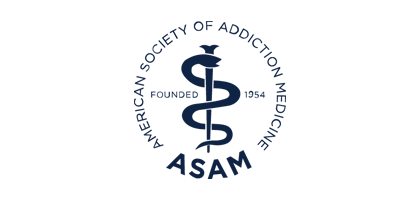Blog
The 21st Century Cures Act - Highlights for ASAM Members
On December 13, President Obama signed the Senate passed the 21st Century Cures Act, a sweeping biomedical innovation bill that includes several legislative changes that will impact the field of addiction medicine.
Highlights of the bill for addiction medicine specialists are outlined below. Legislative text and summary materials for the entire bill are available here.
- Funding for States to Respond to the Opioid Epidemic. The law sets aside $1 billion over two years for the Secretary of Health and Human Services (HHS) to award grants to States to amplify their efforts to combat the opioid epidemic.
- Legislators must still act to appropriate the funds each year ($500 million each in fiscal years 2017 and 2018).
- The first $500 million for fiscal year 2017 was included in the continuing resolution (CR) to fund the government through April 2017.
- SAMHSA has issued a Funding Opportunity Announcement to Singe State Agencies to apply for the funds through State Targeted Response to the Opioid Crisis Grants.
- The funds are to be used to “supplement activities pertaining to opioids undertaken by the State agency responsible for administering the substance abuse prevention and treatment block grant,” such as:
- Improving prescription drug monitoring programs (PDMPs)
- Implementing and evaluating prevention activities
- Training for health care providers on safe opioid prescribing, pain management, recognizing substance use disorders, referral to treatment, and overdose prevention
- Supporting access to health care services
- Other public health-related activities
- Legislators must still act to appropriate the funds each year ($500 million each in fiscal years 2017 and 2018).
- Mental Health Reform. The law includes significant mental health reforms based on the Helping Families in Mental Health Crisis Act, which was authored by Rep. Tim Murphy (R-PA), and the Mental Health Reform Act, which was authored by Senators Murphy (D-CT) and Cassidy (R-LA) such as:
- Establishing an Assistant Secretary for Mental Health and Substance Use, to be appointed by the President, who will head Substance Abuse and Mental Health Services Administration (SAMHSA) and assume the duties and authorities currently held by the SAMHSA Administrator. The Assistant Secretary must:
- Disseminate evidence-based practices and incorporate them into SAMHSA programs
- Ensure grants are subject to performance and outcome evaluations
- Improve recruitment and retention of mental health and substance use disorder professionals
- Collaborate with the criminal justice system to improve mental health and substance use disorder services for individuals who have been arrested or incarcerated
- Establishing a Chief Medical Officer (CMO) within SAMHSA who has real-world experience providing mental health or substance use disorder treatment and who will serve as a liaison between the Administration and providers of mental health and substance use disorder prevention, treatment and recovery support services.
- Requiring SAMHSA to develop a strategic plan every four years that identifies priorities, including a strategy for improving the recruitment, training, and retention of the mental health workforce.
- Requiring the Director of the Center for Substance Abuse Prevention to collaborate with the Directors of the National Institute on Drug Abuse (NIDA), National Institute on Alcoholism and Alcohol Abuse (NIAAA), and Centers for Disease Control and Prevention (CDC) to promote the study of substance use prevention and disseminate and implement findings that will improve prevention services.
- Creating a National Mental Health and Substance Use Policy Laboratory to promote evidence-based practices and service delivery models and authorizes $14 million for fiscal years 2018-2020 for such grants.
- Reauthorizing the Substance Abuse Prevention and Treatment Block Grant at $1.858 billion for fiscal years 2018-2022. States must:
- Ensure personnel working in the State’s substance use disorder prevention, treatment and recovery systems have the opportunity for ongoing training in recent trends in substance use disorders and evidence-based practices for prevention and treatment services
- Submit plans to HHS describing its system of care and how it integrates substance use disorder services and primary health care
- Authorizing the Secretary to establish a training demonstration program within the Health Resources and Services Administration (HRSA) to award five-year grants for medical residents and fellows to practice psychiatry and addiction medicine in underserved, community-based settings and authorizes $10 million per year for fiscal years 2018-2021.
- Requiring the Secretary of HHS to convene stakeholders in one year to determine the effect of the forthcoming Final Rule updating 42 CFR Part 2 on patient care, health outcomes and patient privacy.
- Establishing an Assistant Secretary for Mental Health and Substance Use, to be appointed by the President, who will head Substance Abuse and Mental Health Services Administration (SAMHSA) and assume the duties and authorities currently held by the SAMHSA Administrator. The Assistant Secretary must:
- Improved Parity Enforcement. The law includes several provisions to enhance health plan compliance with the Mental Health Parity and Addiction Equity Act (MHPAEA).
- Requires the Departments of HHS, Labor, and Treasury to release a compliance program guidance providing illustrative examples of past findings of compliance and noncompliance with existing parity requirements, including disclosure requirements and non-quantitative treatment limitations.
- Requires HHS to seek public comment on ways to improve consumer access to documents about mental health and substance use disorder benefits which are required by law to be disclosed.
- Clarifies the Secretaries’ of HHS, Labor, and Treasury authority to audit a health plan in the case that such plan has been found to have violated existing mental health parity laws 5 times.
- Requires HHS to convene a public meeting within six months of enactment to produce an action plan for improved federal and state coordination related to the enforcement of mental health parity and addiction equity requirements.
- Requires GAO, within three years of enactment, to conduct a study on the enforcement of existing parity requirements.

